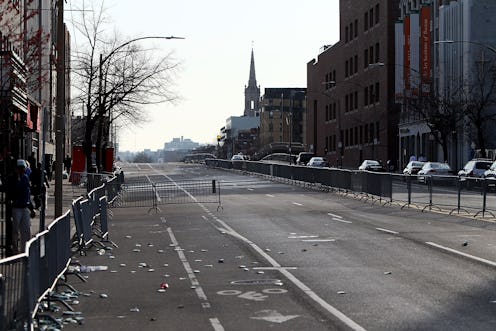News
Tsarnaev's Lawyers Think His Rights Were Violated
Attorneys for the suspected Boston Marathon bomber argue that Dzhokhar Tsarnaev's statements should be thrown out of court, on the grounds that his constitutional rights were violated. Attorneys say Tsarnaev was questioned for more than 20 hours in the hospital while suffering from multiple gunshot wounds and wasn't read his Miranda rights, even after he continuously asked for a lawyer. Tsarnaev's statements were involuntary, they insist. For their part, authorities argue they were in the right based on a “public safety exception."
In a 21-page court filing, the suspect's lawyers say Tsarnaev's questioning was "obviously an effort to extract as much incriminating information as possible, without regard for the protections of the Fifth Amendment," according to the Chicago Tribune. He was in pain, heavily drugged, had his jaw wired closed and his left eye sewn up. Tsarnaev couldn't talk at the time, so he answered in writing.
Attorneys maintain that his notes contained repeated requests for rest and he wrote the word "lawyer" 10 times, sometimes circling it. In some instances, his scribbles trailed off, suggesting that he lost motor control or passed out, they argue. The filing also states that public defenders came to the hospital after the bombing suspect was admitted, but were denied several times.
Tsarnaev is accused of killing three people and injuring 264 at the Boston Marathon’s finish line on April 15, 2013. He's currently being held in a federal prison facility. He and his brother, Tamerlan, who died after a shootout with police, also allegedly murdered an MIT police officer after the bombing.
Do Tsarnaev's attorneys really have a case here? Painkillers played a role in impairing their client's judgement, they say, and also increased his susceptibility to pressure. If successful in their requests, all the information the 20-year-old suspect gave authorities at the time — including how the bombs were made and about the brothers' activities before and after the Boston Marathon attack — wouldn't be used in court.
Threat to public safety is a major issue here, as argued by law enforcement. In this case, authorities felt that Tsarnaev had information that was crucial to protecting the public, such as the location of possible additional bombs. Some experts say that "there's probability" Tsarnaev's lawyers could win. After his arrest, even the American Civil Liberties Union protested the decision not to read the suspect his Miranda rights.
"Denial of rights is un-American and will only make it harder to obtain fair convictions," the ACLU statement reads.
It's a tricky situation, harkening back to a 2009 terrorism incident in which law enforcement officials were criticized for reading Umar Farouk Abdulmutallab, the "underwear bomber," his Miranda rights after his first interrogation. He then stopped talking. Abdulmutallab was convicted of attempting to detonate explosives on commercial airliner.
